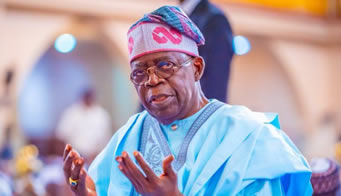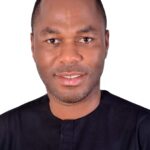Nigeria today is passing through some of its most difficult times in recent memory. Food prices are rising, transport costs are suffocating, and families are struggling to stay afloat. For many citizens, these are not abstract numbers; they are the daily reality of survival. Yet these hardships are not the signs of a nation in decline. They are the painful but necessary steps of reform. President Bola Ahmed Tinubu has chosen to confront Nigeria’s problems head-on, rather than hide them behind temporary fixes. That choice is costly in the short term, but it is the only path if Nigeria is ever to rise into the league of first world nations.
In just over a year, Tinubu has moved with unusual energy to reposition Nigeria on the global stage. The landmark air services agreement signed with Brazil is more than aviation policy; it reconnects Africa’s largest economy with South America’s biggest market, laying the groundwork for trade, tourism, and investment. Added to this is a billion-dollar agricultural pact with Brazil, which will bring machines, training, and food security support to Nigerian farmers. Beyond South America, Tinubu has engaged India for investment, Germany for energy partnerships, and reasserted Nigeria’s presence in international forums. For a nation long absent from global conversations, this diplomatic resurgence is no small feat.
But the world offers no shortcuts to greatness. History shows that no nation ever became prosperous without enduring hard pains first. Singapore under Lee Kuan Yew endured years of strict rules and austerity before becoming a shining city-state. South Korea under Park Chung-hee demanded long hours and low wages from its people before rising as an industrial power. China under Deng Xiaoping weathered uncertainty and inequality before lifting hundreds of millions out of poverty. Even post-war Germany, under Konrad Adenauer, suffered hunger and humiliation while embracing painful reforms that eventually made it Europe’s economic engine. Their citizens bore the suffering of reform, and today they enjoy the rewards.
Nigeria’s present difficulties fit into that same pattern. For decades, leaders preferred cosmetic policies—subsidies, handouts, and half-measures—that postponed the inevitable. Tinubu has decided to do what others refused: cut into the heart of the problem. The removal of fuel subsidies, exchange rate reforms, and investment drives are not without immediate costs, but they are designed to lay a stronger foundation for the future. Yes, inflation is biting. Yes, families are under immense pressure. But this moment must be seen as the beginning of a long climb, not the end of the road.
Supporting Tinubu does not mean blind praise or unconditional loyalty. Government must still be held accountable for transparency, efficiency, and fairness in how the burden of reform is shared. What it does mean is that Nigerians should resist the temptation to retreat into old cycles of waste and short-term comfort. If we abandon reform now, we condemn ourselves to repeat the failures of the past. But if we endure, Nigeria has a genuine chance to stand among nations that once suffered but are now first world powers.
The truth is simple: better days never arrive without hard pains. Tinubu is taking Nigeria on the difficult road of reform, one that demands sacrifice today in exchange for dignity tomorrow. Our duty as citizens is to stay the course—demanding accountability, yes, but also offering patience—until this season of hardship delivers a Nigeria that is respected abroad and dignified at home.
Saintmoses Eromosele writes from his cassava farms in Eidenu and Ewu, Edo State.
Saintmoses Eromosele
Saintmoses Eromosele is a Nigerian scholar, community organiser, and entrepreneur. He is the Executive Director of the Oneghe Sele Foundation and CEO of multiple ventures spanning education, healthcare, property, media, and technology. A trained legal mind with academic grounding in law, sociology, economics, management, and public administration, he is widely known for his advocacy on justice, civic responsibility, and equitable governance. He writes from his cassava farm in Ewu, Edo State.







